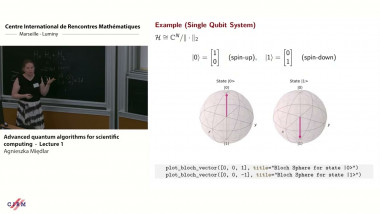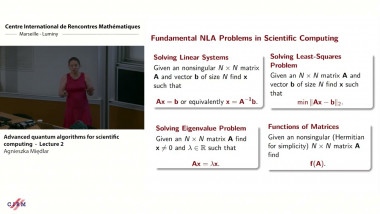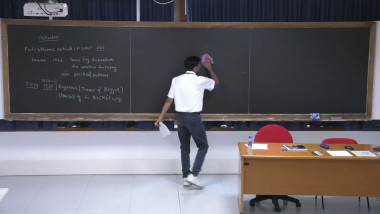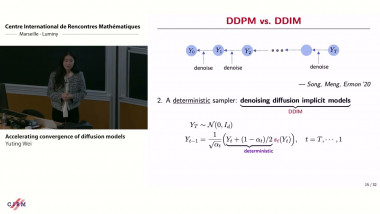Apparaît dans la collection : CEMRACS 2021: Data Assimilation and Model Reduction in High Dimensional Problems / CEMRACS 2021: Assimilation de données et réduction de modèle pour des problêmes en grande dimension
An ubiquitous problem in applied science is the recovery of physical phenomenons, represented by multivariate functions, from uncomplete measurements. These measurements typically have the form of pointwise data, but could also be obtained by linear functional. Most often, recovery techniques are based on some form of approximation by finite dimensional space that should accurately capture the unknown multivariate function. The first part of the course will review fundamental tools from approximation theory that describe how well relevant classes of multivariate functions can be described by such finite dimensional spaces. The notion of (linear or nonlinear) n-width will be developped, in relation with reduced modeling strategies that allow to construct near-optimal approximation spaces for classes of parametrized PDE's. Functions of many variables that are subject to the curse of dimensionality, will also be discussed. The second part of the course will review two recovery strategies from uncomplete measurements: weighted least-squares and parametrized background data-weak methods. An emphasis will be put on the derivation of sample distributions of minimal size for ensuring optimal convergence estimates.
















